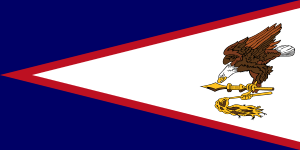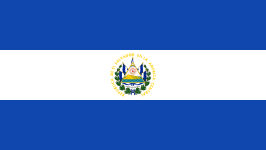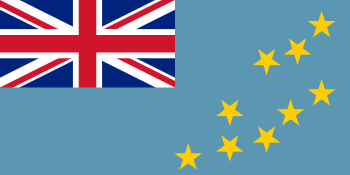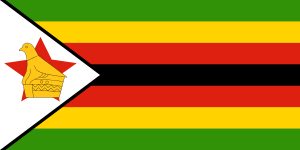RLIF World Rankings
| Official Rankings as of December 2015[1] | |||
| Rank | Change | Team | Points |
| 1 | 897.00 | ||
| 2 | | 719.00 | |
| 3 | 655.00 | ||
| 4 | | 280.00 | |
| 5 | | 209.00 | |
| 6 | 162.00 | ||
| 7 | | 147.00 | |
| 8 | | 132.00 | |
| 9 | | 121.00 | |
| 10 | 102.00 | ||
| 11 | 72.00 | ||
| 12 | 65.00 | ||
| 13 | 62.00 | ||
| 14 | | 60.00 | |
| 15 | 46.00 | ||
| 16 | 40.00 | ||
| 17 | 40.00 | ||
| 18 | | 32.00 | |
| 19 | 28.00 | ||
| 20 | 27.00 | ||
| 21 | 26.00 | ||
| 22 | | 23.00 | |
| 23 | | 22.00 | |
| 24 | 21.00 | ||
| 25 | 20.00 | ||
| 26 | 19.00 | ||
| 27 | 16.00 | ||
| 28 | 15.00 | ||
| 29 | 15.00 | ||
| 30 | 14.00 | ||
| 31 | 13.00 | ||
| 32 | 4.00 | ||
| 33 | 2.00 | ||
| 34 | 2.00 | ||
| 35 | 0.00 | ||
The RLIF World Rankings is a ranking system for men's national teams in the sport of rugby league football. The teams of the member nations of the Rugby League International Federation, rugby league football's world governing body, are ranked based on their game results with the most successful teams being ranked highest. A point system is used, with points being awarded based on the results of RLIF-recognized international matches. Under the existing system, rankings are based on a team's performance over the last three years, with more recent results and more significant matches being more heavily weighted to help reflect the current competitive state of a team.
Ranking system
The RLIF World Rankings are calculated based on an average of points accumulated by each Nation over a three-year cycle. Under the structure, matches deemed of higher importance such as World Cup games, Four Nations and other major tournament finals draw more points than mid-season Tests and other ‘Internationals’. For each match that a nation participates they are given a base level of points. This base level is affected upon the type of match (World Cup, Major Tournament, Test Match and International) and the status of the opponent.
Bonus points are given for teams that reach certain milestones deemed of significant international importance including reaching a tournament final or qualifying for an event such as a World Cup.
From the total number of points that a nation will receive these points are then averaged to help give a more accurate view of the performance of a nation over the three-year cycle.
Nations which have played fewer than 5 matches over a three-year cycle will be penalised under the current point structure.
Use of the rankings
The rankings are used by Rugby League International Federation to view the progression and ability of the national rugby league teams.
The data is currently used in things as seeding for tournaments such as the European Cup, Mediterranean Cup and Pacific Cup.
Criticism
Since the ranking system's introduction in 2007 many people have criticized the rankings of some of the teams placings in the official standings released by the Rugby League International Federation with claims that the strength of the teams are often seen as a secondary force in the moving of rankings in comparison with the amount of fixtures that are played in by a nation.
The counterbalancing argument to this is that this system encourages nations to play in more international matches or 'friendlies' outside of just major tournaments in the hope of gaining a higher RLIF ranking.
Current calculation method
Match status
A weighting system has been implemented by the RLIF to give more points to teams if they gain a victory over a major team in a major tournament, with friendlies ranked with considerably fewer points than any World Cup finals match or the final of Cups such as the European, Mediterranean and Pacific Cups.
Opponent strength
The RLIF has organized the ranking so that a win against a very highly ranked opponent is a considerably greater achievement than a win against a low-rated opponent, so the strength of the opposing team is a factor.
Assessment period
All matches played over the last thirty-six months or three years are included in the calculation of the rankings, but there is a weighting system implemented to put more emphasis on recent results.
Ranking schedule
Rankings are calculated throughout each year but are based only on matches played in the previous three years.
A team must play at least five matches over the RLIF designated period to be included in the rankings without having a penalty applied to the nations national team.
Other National Teams
The following teams are not mentioned on the RLIF Rankings website but have Observers status in the RLIF or their respective confederations or are significant enough to have a page on Rugby League Planet[2][3]
 American Samoa
American Samoa Argentina
Argentina Austria
Austria Bosnia and Herzegovina
Bosnia and Herzegovina Brazil
Brazil Catalonia
Catalonia Chile
Chile China
China Colombia
Colombia Ecuador
Ecuador Estonia
Estonia El Salvador
El Salvador Ethiopia
Ethiopia Georgia
Georgia Ghana
Ghana India
India Indonesia
Indonesia Japan
Japan Kazakhstan
Kazakhstan Kenya
Kenya Malaysia
Malaysia Mexico
Mexico Moldova
Moldova Nigeria
Nigeria Norfolk Island
Norfolk Island Palestine
Palestine Panama
Panama Pakistan
Pakistan Peru
Peru Philippines
Philippines Poland
Poland Portugal
Portugal Qatar
Qatar Saudi Arabia
Saudi Arabia Sierra Leone
Sierra Leone Singapore
Singapore Solomon Islands
Solomon Islands Thailand
Thailand Tokelau
Tokelau Trinidad and Tobago
Trinidad and Tobago Tuvalu
Tuvalu United Arab Emirates
United Arab Emirates Uruguay
Uruguay Vanuatu
Vanuatu Venezuela
Venezuela Zimbabwe
Zimbabwe
See also
Notes and references
External links
| ||||||